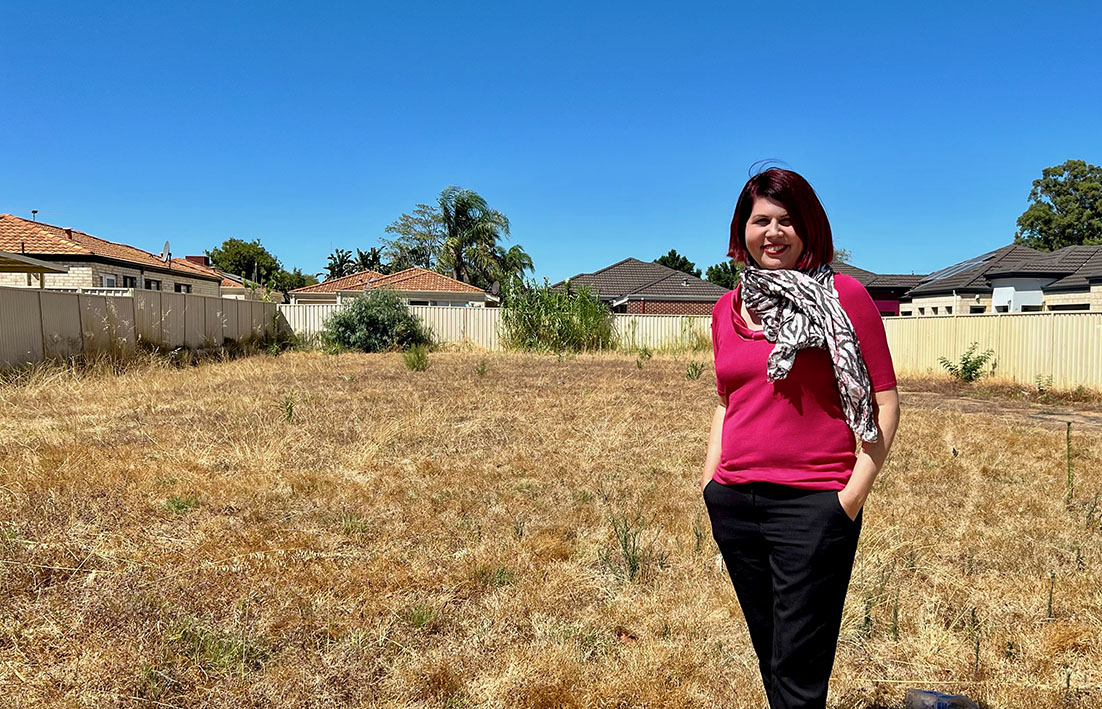
FOLLOWING debate during which councillor Dave Knight said concern about a proposed 30 per cent vacant land tax increase was a ‘storm in a tea cup’ the motion has been revoked by City of Swan councillors.
On April 10 Cr Rashelle Predovnik introduced a motion to revoke the original motion introduced by Cr Knight in February, which was passed 9-6.
Cr Predovnik’s reason for wanting the motion revoked included that voting for a 30 per cent rate hike – with no consultation and no communication with about 4700 ratepayers that had been singled out – and targeted to cop the hike – was being viewed as discrimination.
She also said people were wondering why the city wasn’t asking all rate payers to contribute to a tree planting levy– since this was an issue that affected every ratepayer.
“They ask if this motion to raise revenue for tree planting really is for the greater good – as was mentioned in the debate in February – why aren’t all ratepayers being asked to share the load?’’ she said.
Seconding the motion Cr Rod Henderson said consideration of the unintended consequences of the proposal had not been thought through.
“A proper consultation free of other influencing factors is required,’’ he said.
When Cr Knight introduced the motion, which passed due to a casting vote by Mayor Tanya Richardson, he said the reason for the motion was the housing crisis and the need to increase urban infill by encouraging vacant landholders to develop their land.
He said the proposal would bring the city into line with other local government areas and generate an estimated $1.5 million extra per annum.
His third reason was that the money raised could be spent on lining the city’s streets with trees, which would improve property values, create better, healthier more desirable places to live, which would improve the return for the landholders when they develop their blocks of land and sell; as well as expediting the goals of the city’s urban forest plan.
During the debate Cr Haeden Miles said there continued to be some confusion about the motion that was proposed to be revoked and the council decision back in February did not formerly impose a differential rate on vacant land.
“Cr Knight’s motion simply set the ball rolling on a proposed measure that’s adopted by many local governments and their (proposed) vacant land tax rating is actually higher than ours,’’ he said.
“In relation to Cr Predovnik’s reasons for the revocation, in particular the lack of community consultation, staff also outlined the city was still obliged to prepare a draft budget and advertise the (objectives) and reasons for categories of rates, which would have allowed for widespread feedback on the proposal and the council could then consider that before making any changes.”
He said the majority of ratepayers and residents would benefit from the proposal.
Deputy mayor Ian Johnson said to see how much vacant land there was people just needed to take a walk around three streets in Midland – Cope Street, Loton Avenue and Hooley Road – where he said there were 10 vacant blocks.
Cr Charlie Zannino said the proposal was out of touch given current economic realities and quoted a letter Unused land burdens, (Echo News, March 22) from Midland vacant land owner Michelle Zimmel.
She said the dire state of the building industry had prevented her from developing the block and on-selling it.
“From time of land purchase to occupancy is at least two to 2.5 years, so this pernicious tax will not result in short term housing supply,’’ she wrote.
“If the city was really serious about addressing the housing shortage, it should look at the entire housing estate in its area, including land zoning and the mass of homes on Airbnb.
“Taxing vacant landholders who are already conveniently identified in its data base is just a selfish money grab that kicks owners whose hands are tied by circumstances beyond their control.’’